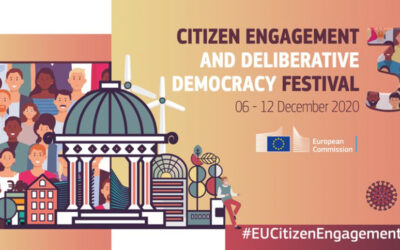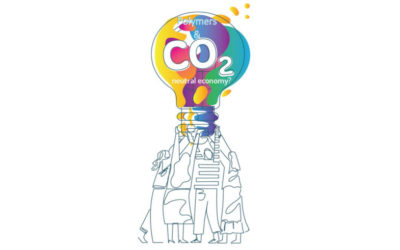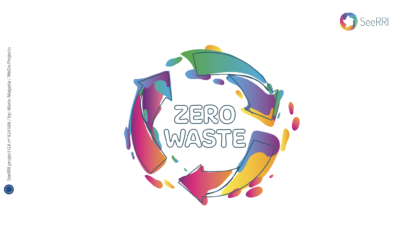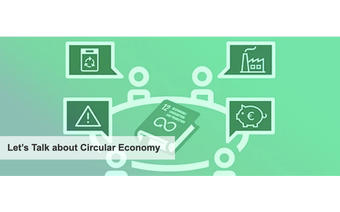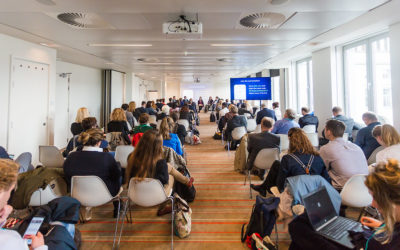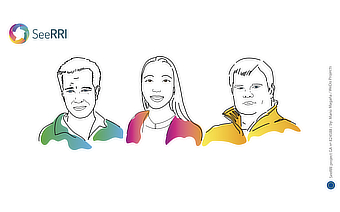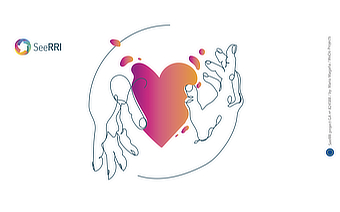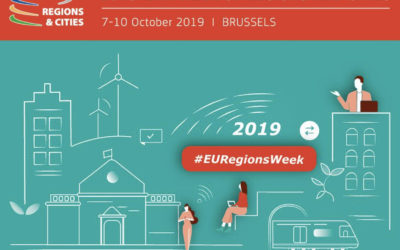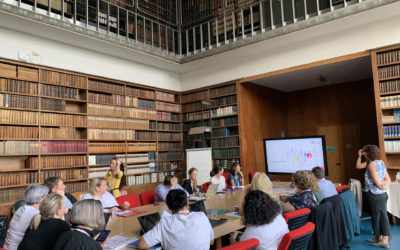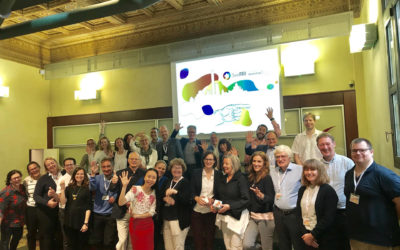3rd Annual Citizen Engagement and Deliberative Democracy Festival
SeeRRI was a proud contributor to the 3rd Annual Citizen Engagement and Deliberative Democracy Festival held by the European Commission from 6-12 December 2020. The festival is an open event that unites people who are interested and involved in citizen engagement and...
Lower Austria Stakeholder Workshop – 5 October
Rabenstein, Austria was the location of SeeRRI’s fourth stakeholder workshop for Lower Austria. Held on 5 October 2020, this was the latest in a series of workshops focused on the polymer industry in Lower Austria. It followed on from the July workshops where the...
Barcelona Stakeholder Workshop 3 (On Line): Addressing the challenges towards the desired scenario : 29th September, 2020
1) Objectives/contents of the workshop This third workshop was aimed to mobilise the R&I actors of the B30 to propose solutions for the challenges previously identified. Consequently, the persons participating in the workshop were related (directly or...
Mapping RRI Dimensions and Sustainability into Regional Development Policies and Urban Planning Instruments
The article provides a methodology to map the inclusion of RRI dimensions into regional development policies and spatial planning instruments, in order to detect integrated strategies and elements that are sustainable, open, inclusive, anticipative and responsive.
Update from SeeRRI’s presentation at the EU Week of Region and Cities in Brussels
In October 2019, SeeRRI project was presented at the workshop “Science for Citizens: how science meets regions and cities”, which showcase new ways of co-creation with multi-stakeholders in the process of developing Regional Research and Innovation strategies. SeeRRI, a project funded by the European Commission, focuses on establishing responsible research and innovation ecosystems by integrating Smart Specialisation Strategy and RRI.
Conference track related to RRI and learning organizations
There are significant complementarities between the vision of a learning organization and currently influential notions of responsible innovation (Hansen et al., 2020). In fact some of the core qualities that characterize the learning organization according to Senge (1990) – such as openness, reflection, a shared vision, and an emphasis on collective inquiry – are qualities that directly define responsible innovation according to some interpretations of that concept, except that to qualify as a responsible innovator an organization must extend the scope of those qualities beyond its own boundaries to include other stakeholders in society in the innovation process.
SeeRRI open access publication about RRI and learning organization
How can organizations become responsible innovators? We show how a “learning organization” is better able to practice RRI. Our findings suggest that practicing RRI may give companies a competitive advantage.
SeeRRI will be presented at the European Week of Regions and Cities 2019 in Brussels
The SeeRRI project will be presented at the European Week of Regions and Cities 2019 in Brussels on 9 October 2019, in the session “Science for Citizens: how science meets regions and cities”.
SeeRRI facilitator team met in Bologna
Last 18 th September the SeeRRI facilitator team met in Bologna to attend the first RRI facilitator training session. Facilitators from the 3 territories (B-30, Norland and Ecoplus) and from different backgrounds (researchers, companies and governments) worked together through participatory methodologies to gain knowledge about the general concept of RRI.
SeeRRI workshop in Bologna
SeeRRI’s first stakeholder workshop was successfully held in Bologna, Italy, on September 18-20, 2019. The event was hosted by the University of Bologna (UNIBO).
Nordland Research Institute’s dissemination activities in spring 2019
Nhien Nguyen from Nordland Reseach Institute (NRI) has presented SeeRRI at several events in Norway during the spring of 2019, helping to create awareness of the project: - In the course “EU Instruments for Research and Innovation” hosted by Nord University in...
Junge Uni Krems 2019
Participating children at the Junge Uni Krems 2019 explain why responsible research and innovation is important for our society. Finally, they share with us their option why researchers and entrepreneurs should collaborate.
![]() This project has received funding from the European Union’s Horizon 2020 research and innovation programme under grant agreement nº 824588.
This project has received funding from the European Union’s Horizon 2020 research and innovation programme under grant agreement nº 824588.
